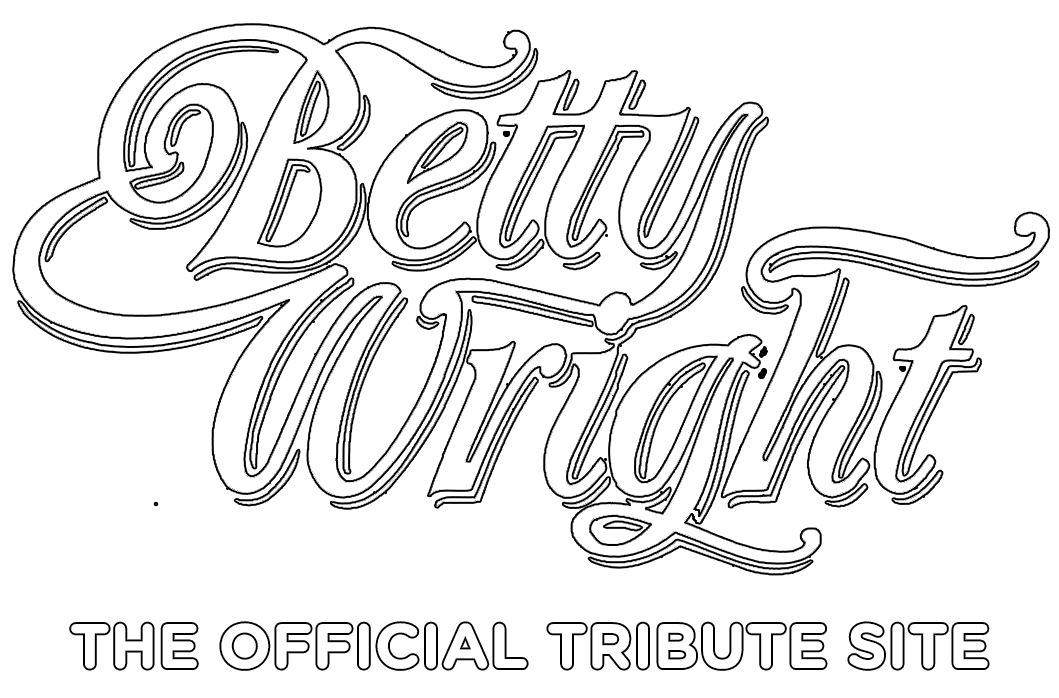Discography
Danger High Voltage (1974)
Tracklist
Everybody Was Rockin'
Love Don't Grow on a Love Tree
Show Your Girl
Come on Up
Shoorah! Shoorah!
Where Is the Love
That's When I'll Stop Loving You
Don't Thank Me Baby, Thank Yourself
Tonight Is the Night
Stream
Apple Music / Amazon / Tidal / YouTube Music
About the Album
by Jason A. Michael
Danger High Voltage, Betty’s fourth album, is one of her most popular from the Alston/TK years. Released in June of 1974, Rolling Stone gave the album four out of four stars and said it was “a cross section of exuberant, varied dance songs and poignant ballads recorded during the peak of Miami soul.” Reviewer Robert Christgau from the Village Voice gave the album an A- saying that Betty had “never sounded brighter or sassier – and she’s always sounded bright and sassy.”
The nine tracks here are all solid with no filler, six originals from the TK team and three outside songs. Production was split between regulars Willie Clarke, Clarence Reid and Steve Alaimo as well as by KC and the Sunshine Band’s Harry Wayne Casey and Rick Finch, who had just broken out and were racing up the charts with their own hits. Most of the core of the TK stable of artists takes part in the album with Willie “Little Beaver” Hale on guitar, Timmy Thomas and Latimore on keys and a newcomer to the label, Jimmie “Bo” Horne, on backing vocals all contributing.
The album opens with a bang in the form of Everybody Was Rockin’, written and produced by Clarke and Reid. The funk starts here, with some exuberant horns arranged by Mike Lewis, and doesn’t let up throughout the entire album. In Everybody, Betty dates the album by describing a Zodiac party she went to – the invite said, ‘don’t forget to wear your sign’ – and returns home “at a quarter to 4” to find her entire family grooving and rockin’ as hard as those at the party she just left. Betty encourages everyone, including Granny and Aunt Fannie, to get down. Everybody would eventually be released as a single, but not until long after the album had been released.
The second track on the album, Love Don’t Grow on a Love Tree, is credited to Harry Wayne Casey, Betty and Clarke and was produced by Clarke and Alaimo. Here Betty shadows herself vocally and even answers herself in the background making the song almost a duet between Betty and her alter ego. Show Your Girl, next up, was written by Harry Wayne Casey and his fellow bandmate and writing and production partner Rick Finch. It was produced by the two of them with assistance from Clarke.
Come on Up was written by musician, songwriter, arranger and producer Felix Cavaliere. Previously, Cavaliere had been a member of both Joey Dee and the Starliters (The Peppermint Twist) and the Young Rascals (Good Lovin, People Got to Be Free). Now, his first album as a solo artist was about to be released on Bearsville Records. Clarke produced the frenetically paced Come on Up on his own as he did on the album’s next song, the Allen Toussaint written Shoorah! Shoorah! Touissant was already revered on the New Orleans R&B scene by this time and November of 1974 saw the release of one of most successful productions, Lady Marmalade by LaBelle.
Shoorah! (Alston 3711) would, therefore, be the first single released from Danger in the fall of 1974. It was backed with a quiet little love song called Tonight is the Night and the single became a modest double-sided hit reaching #28. Tonight would, of course, become one of Betty’s biggest hits, especially after she added it to her live shows where the crowds loved it. But Shoorah! was a first for Betty – the first time she had charted in the UK where the song reached #27 and became quite popular. As for Tonight, it was the third song on the album produced by Clarke alone. It was written by Betty – a poem in her private notebook that Clarke allegedly stumbled upon – but her contract with Clarke called for him to get 25% of her writer’s royalty. Supposedly the story of Betty’s first sexual experience – she would long deny it, however, declaring she would never do the do in her mama’s house, as the song describes – the BBC said, in reviewing the track, that it was “sensuously soulful … and delivered absolutely straight. It is rare such a tender and potentially gauche subject is handled so directly and non-controversially.”
Where is the Love (Alston 3713) would be the album’s second single. Released in the spring of 1975 and backed with My Baby Ain’t My Baby Anymore (a non-album track written by Clarke-Reid and Betty and produced by Clarke and Reid), Where is the Love was originally a song that Harry Wayne Casey and Rick Finch had been working on. Betty heard it, reworked some of the lyrics, which required Clarke to get his cut, too, and voila! The song, which was produced by Casey, Finch and Clarke, would reach #15 R&B/#96 Pop and #2 on the new Disco chart. Not surprisingly, Casey played keys on the song and Finch drums and bass guitar. Sunshine Band guitarist Jerome Smith would also give Little Beaver a run for his money with his frenetic guitar playing on the track.
Where is the Love would be Betty’s second single to chart in the UK, reaching #25. At the 18th Grammy Awards in 1975, Where is the Love would win Betty, along with co-writers Harry Wayne Casey, Rick Finch and Clarke, the award for Best R&B Song of the Year. KC & The Sunshine Band had had a breakout year in 1974 and had received a total of five Grammy nominations (including Best New Artist, Best R&B Vocal Performance by a Duo or Group for Get Down Tonight, Best R&B Song for Get Down Tonight and Best R&B Song for That’s the Way (I Like It).) Clearly feeling themselves as they walked around the TK offices, Betty knocked Casey down a peg when she predicted the only Grammy he would win would be the one he shared with her. And she was right. KC got to accept it though as Betty wasn’t even at the Grammy ceremony. Instead, she was back in Miami in church when she won the award.
That’s When I’ll Stop Loving You, written by Billy Kennedy, was originally released as a single by Belita Woods on the Detroit-based Moira Records label (Moira M-107) in 1969. A couple years down the road, Woods would join the band Brainstorm and sing lead on the disco classic Lovin’ is Really My Game, which Betty would use to open her live shows for a time and cover on her platinum-selling Live album in 1978. On That’s When, though, Betty sings so sweetly and convincingly you’d think it was another of her love poems come to life.
Don’t Thank Me Baby, Thank Yourself was written by Motown songwriters Gloria Jones and Pam Sawyer and published by Motown’s Jobete Publishing. Jones, a vocalist herself who was hugely popular in the UK where she was known at The Queen of Northern Soul, and Sawyer came together to become a successful, if second string, writing duo at Motown. Before Betty even recorded Don’t Thank Me, Jones and Sawyer had already seen their songs recorded by Gladys Knight & The Pips, the Four Tops and The Jackson 5.
Though there was more gold to be mined from Danger, after releasing only two singles Alston started issuing more non-album singles throughout 1975. Ooola La backed with To Love and Be Loved (Alston 3715) were both written and produced by Clarke-Reid. Ooola La would reach #28 R&B. Next up, Slip and Do It, backed with I Think I Better Think About It, (Alston 3718) features Betty at her most risque. It went to #21 R&B. Meanwhile, Think About It was a Betty write produced by Clarke. Finally, Danger’s Everybody Was Rockin’ (Alston 3719) was released as a single backed with another album cut written by Casey-Finch, Show Your Girl. The single, however, failed to chart.


